The National School of Development at Peking University and the National Committee on U.S.-China Relations convened the seventh Track II Dialogue on Healthcare online through Zoom on July 20 and 22, 2022. The dialogue brought 28 Chinese and American leading experts in healthcare policy and practice together to discuss critical healthcare issues, aiming to explore areas of improvement for collaboration and cooperation between China and the U.S. A wide range of topics were discussed, including joint effort to address the current COVID-19 pandemic and future pandemic, developing more resilient innovative and sustainable healthcare systems, and healthcare innovation and regulatory harmonization.
Steve Orlins, American co-organizer of the Dialogue of the “China-U.S. Track II Dialogue on Health” and the President of the National Committee on U.S.-China Relations, and Gordon G. Liu, Chinese co-organizer of the Dialogue, PKU BOYA Distinguished Professor of Economics, National School of Development; Dean, PKU Institute for Global Health and Development, delivered welcome remarks respectively.
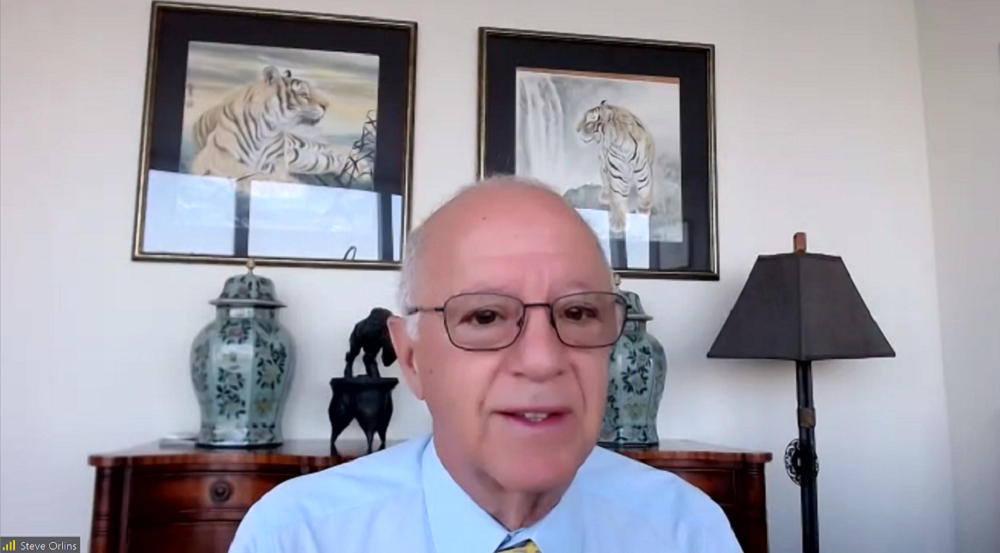
Stephen Orlins, President, National Committee on U.S.-China Relations (Co-Organizer of the Dialogue)
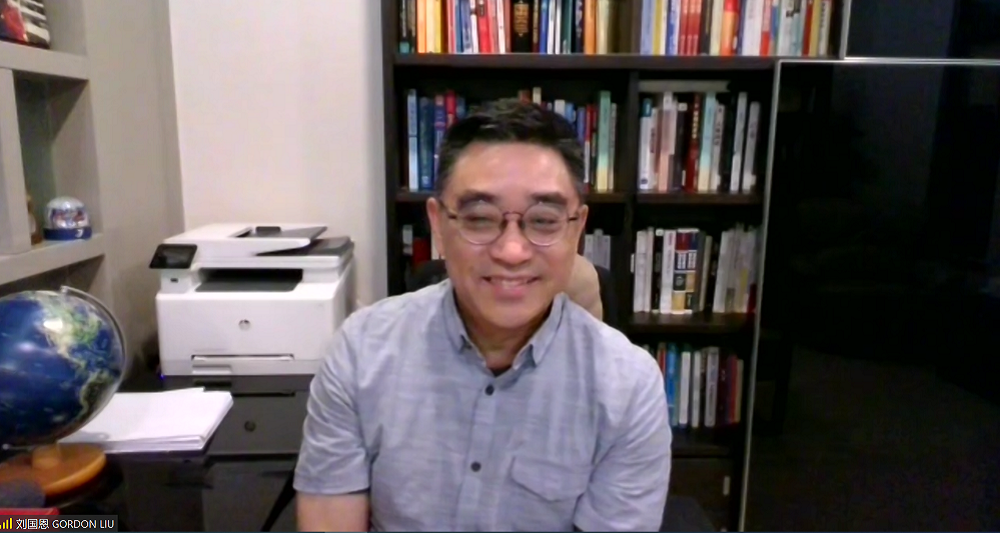
Gordon G. LIU, PKU BOYA Distinguished Professor of Economics, National School of Development; Dean, PKU Institute for Global Health and Development (Co-Organizer of the Dialogue)
This Dialogue consisted of three parts. The first part focused on "Joint Effort to Address the Current COVID-19 Pandemic and Future Pandemics", chaired by Professor Gordon G. Liu, and followed by two experts to give lead talks. In his lead talk, Dr. GAO Fu, Director-General of the Chinese Center for Disease Control and Prevention and Vice President, National Natural Science Foundation of China, introduced China's measures and achievements in responding to the COVID-19 pandemic. He pointed out that on the basis of China's strong community public health capabilities, many policies, including "Dynamic zero-COVID", had been implemented, and called for "If the world doesn't share the vaccine, the virus will share the world."
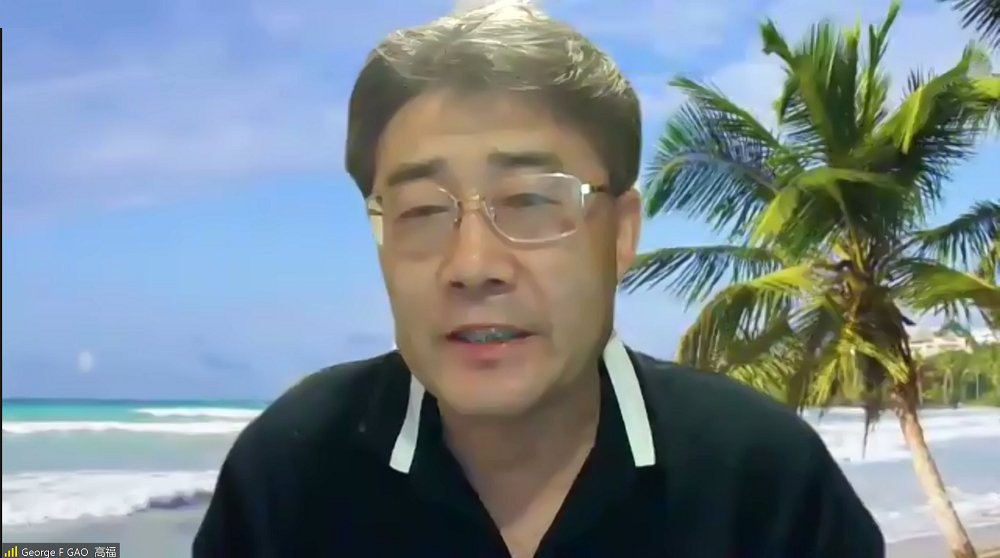
GAO Fu, Director-General, Chinese Center for Disease Control and Prevention; Vice President, National Natural Science Foundation of China (Head of the China team)
Dr. Mark McClellan, former commissioner of the U.S. Food and Drug Administration, Director and Robert J. Margolis Professor of Business, Medicine and Health Policy at Duke University, focused on pandemic response and preparedness. He introduced the current situation of the COVID-19 pandemic in the United States and highlighted the different impacts of the pandemic on medical service providers and patients in terms of value-based payment and fee-for-service scheme. He recommended to deepen the integration of the medical system and the public health system to improve the current public health system capacity, called for the establishment of rapid response, efficient and accessible health care systems, more resilient supply chains and manufacturing capabilities, and pointed out the direction and opportunities for cooperation between China and the United States in the global response to the pandemic.
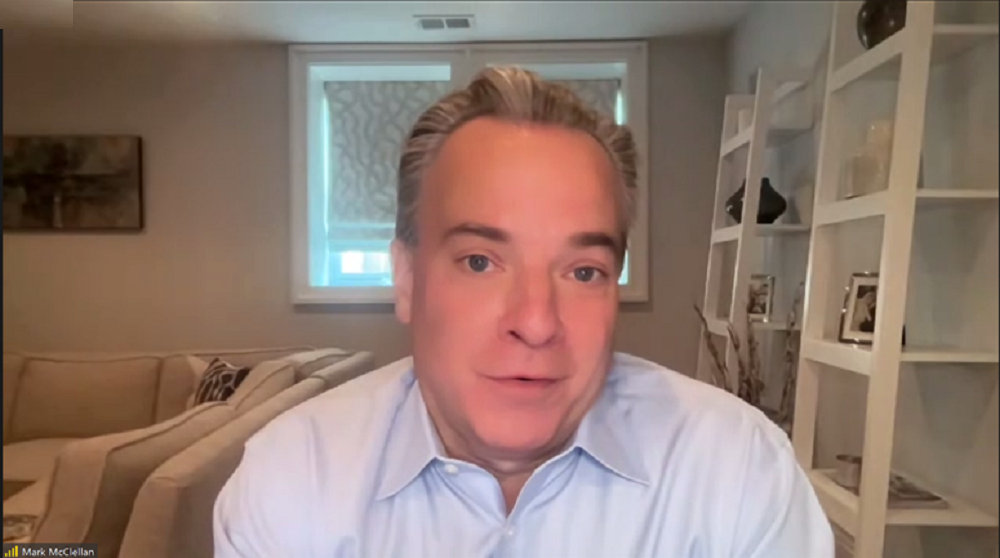
Mark B. McClellan, Director and Robert J. Margolis Professor of Business, Medicine and Health Policy, Margolis Center for Health Policy, Duke University (Head of the U.S. Team)
The second part continued under the theme of "Developing More Resilient Innovative and Sustainable Healthcare Systems". The participating experts held in-depth discussions on issues such as coping with rising medical costs, an aging population, improving the medical insurance system, and building a strong comprehensive primary care service system. Winnie Yip, Professor of global health policy and economics in the Department of Global Health and Population at the Harvard T.H. Chan School of Public Health, moderated the this session and invited Professor WANG Tao (Peking University) and Professor Harlan Krumholz (Yale University) to give the lead talks.
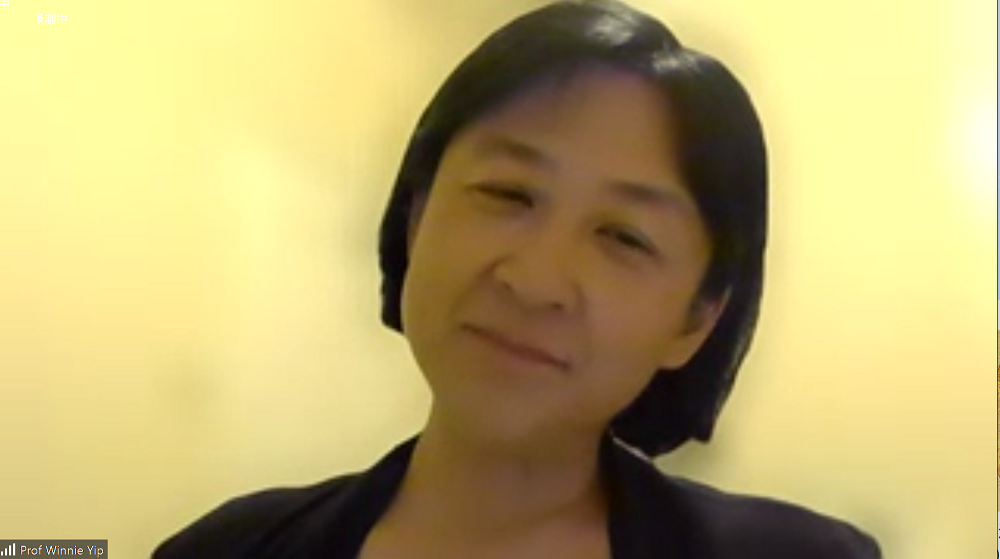
Winnie Yip, Professor of the Practice of International Health Policy and Economics, Harvard T.H. Chan School of Public Health, Harvard University
Hi his lead talk, Dr. WANG Tao, Chairman of the Chronic Disease Management Committee of the China Aging Well Association, Director of the Department of Nephrology of Peking University Third Hospital, and Yangtze River Scholar Professor, presented the cost-effectiveness of prevention-oriented public health that is well-integrated with healthcare from the practical point of view of building a disease prevention and management model. He emphasized the long-term services and supports for the aging population, the implementation of medical reform in a way that advances environmental sustainability, and the promotion strategy of the "One Health" concept, shared valuable experiences and put forward constructive suggestions.
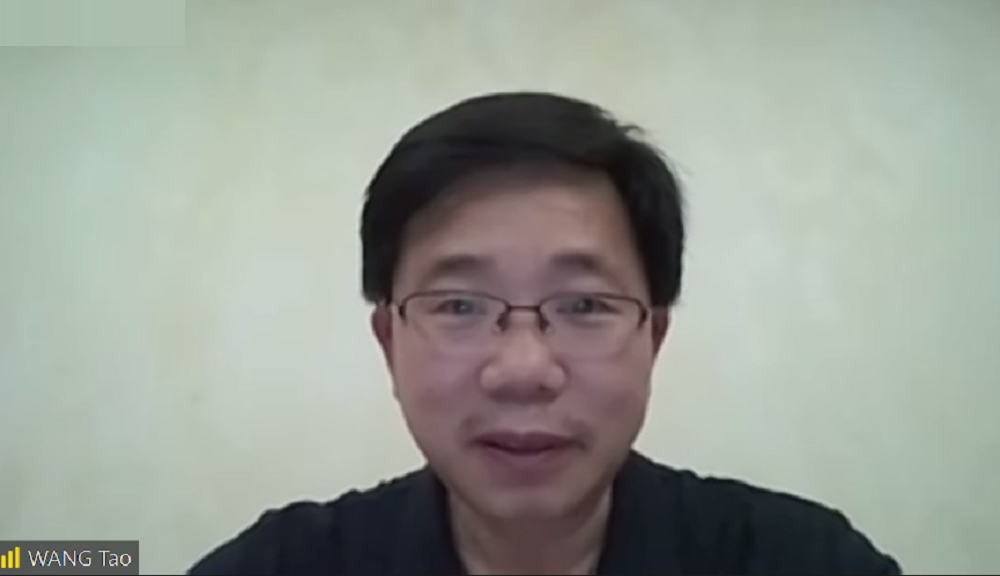
Dr. WANG Tao, Chairman, Chronic Disease Management Committee, China Aging Well Association; Professor, Department of Nephrology, Peking University Third Hospital
Dr. Harlan M. Krumholz, Professor of Medicine and Epidemiology and Public Health, Yale School of Medicine, focused his lead talk on improving the quality of care and health outcomes. He described investment returns of the U.S. medical and health system in the past 20 years by analyzing mortality rates, availability and affordability of health services. Further, he emphasized the important value of increasing investment in the disease prevention system and strengthening public health capacity building. He called for investment in chronic non-communicable diseases (NCDs), medical and public health cooperation to achieve healthy social goals and improve preventable deaths or reduced quality of life.
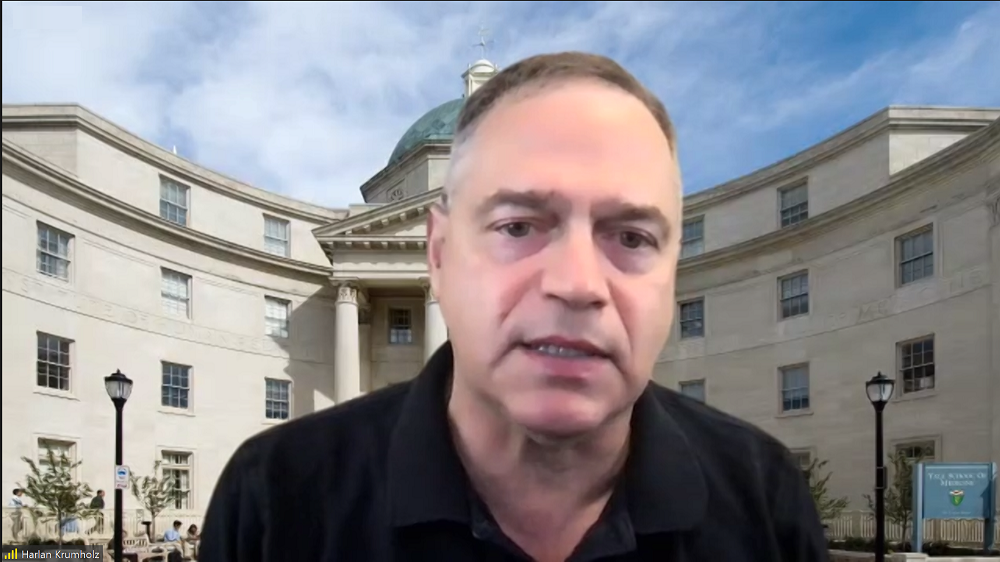
Dr. Harlan M. Krumholz, Harold H. Hines, Jr. Professor of Medicine and Epidemiology and Public Health, Yale School of Medicine
The third part focused on “Healthcare Innovation and Regulatory Harmonization”. A range of topics were discussed deeply, such as how to work together to increase innovation in healthcare and bring these new inventions to facilities that need them, harmonization opportunities emerging from pandemic, and issues around diversity of supply chains. Molly J. Coye, Executive-in-Residence, AVIA Health Innovation, moderated the third part, with Dr. Christopher Colwell (Merck) and Dr. Yu Xuefeng (CanSino Biologics Inc.) to give lead talks.
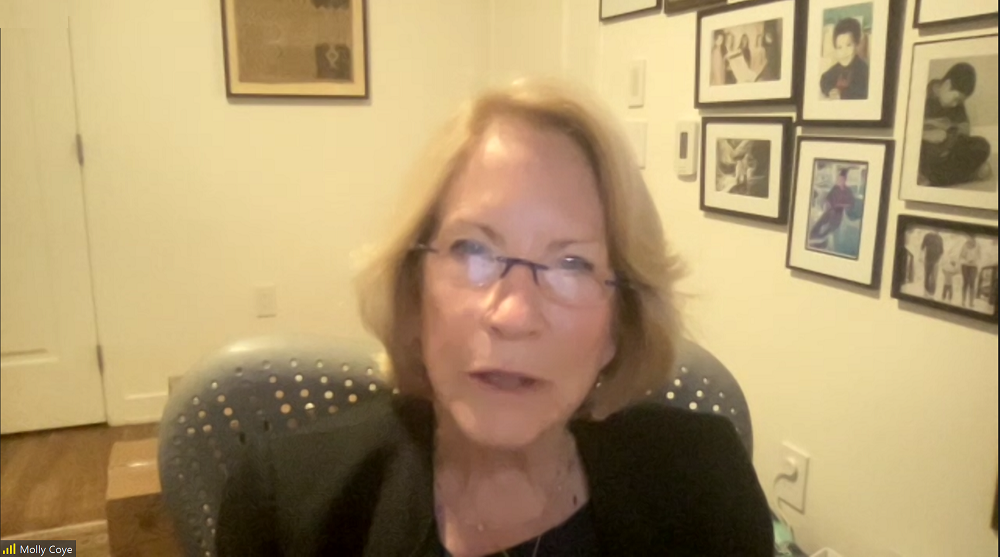
Molly J. Coye, Executive-in-Residence, AVIA Health Innovation
Dr. Christopher Colwell, Executive Director, Asia-Pacific and China Policy, Merck, considered policies that foster an innovation ecosystem, scientific exchanges and commercial partnerships as enablers of innovation. He underscored exchange of ideas on how to value the full societal and economic value of healthcare and healthcare innovations and shared his opinion on how to best measure the full value (e.g., economic and productivity gains, health equity). He also talked about harmonization opportunities emerging from pandemic; issues around diversity of supply chains and issues of regulatory acceptability.
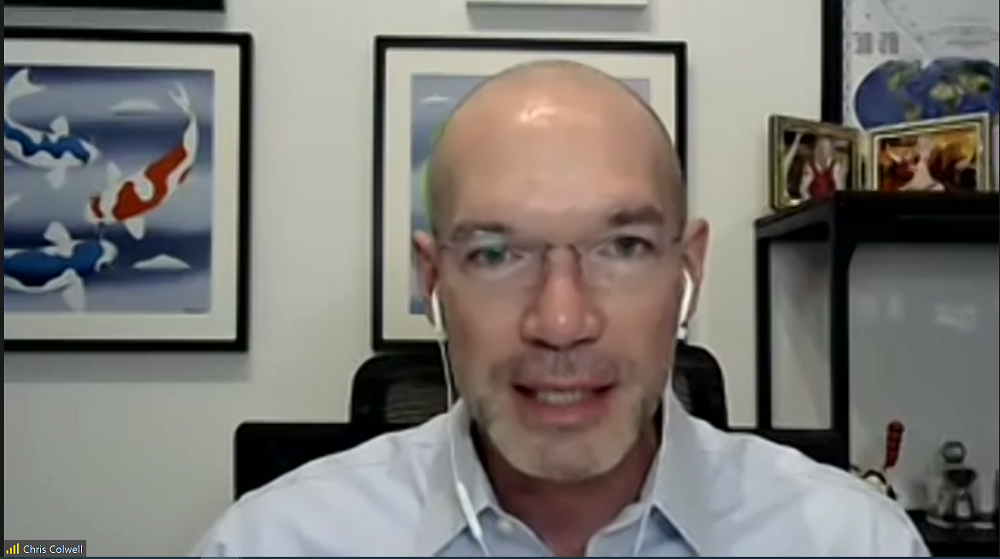
Dr. Christopher Colwell, Executive Director, Asia-Pacific and China Policy, Merck
Dr. YU Xuefeng, Co-Founder, Chairman and CEO, CanSino Biologics Inc., urged for more cooperation between enterprises and academia and a cooperation-friendly support environment. Supports of global partners and cooperation networks were needed to carry out innovative activities such as manufacturing COVID-19 vaccines. He emphasized that CanSino had rapidly developed vaccine products with the support of international cooperation networks, been approved by the WHO and distributed in more than 10 countries, while many Chinese companies often lacked such capabilities. He called for international cooperation and data sharing to improve innovation capabilities.
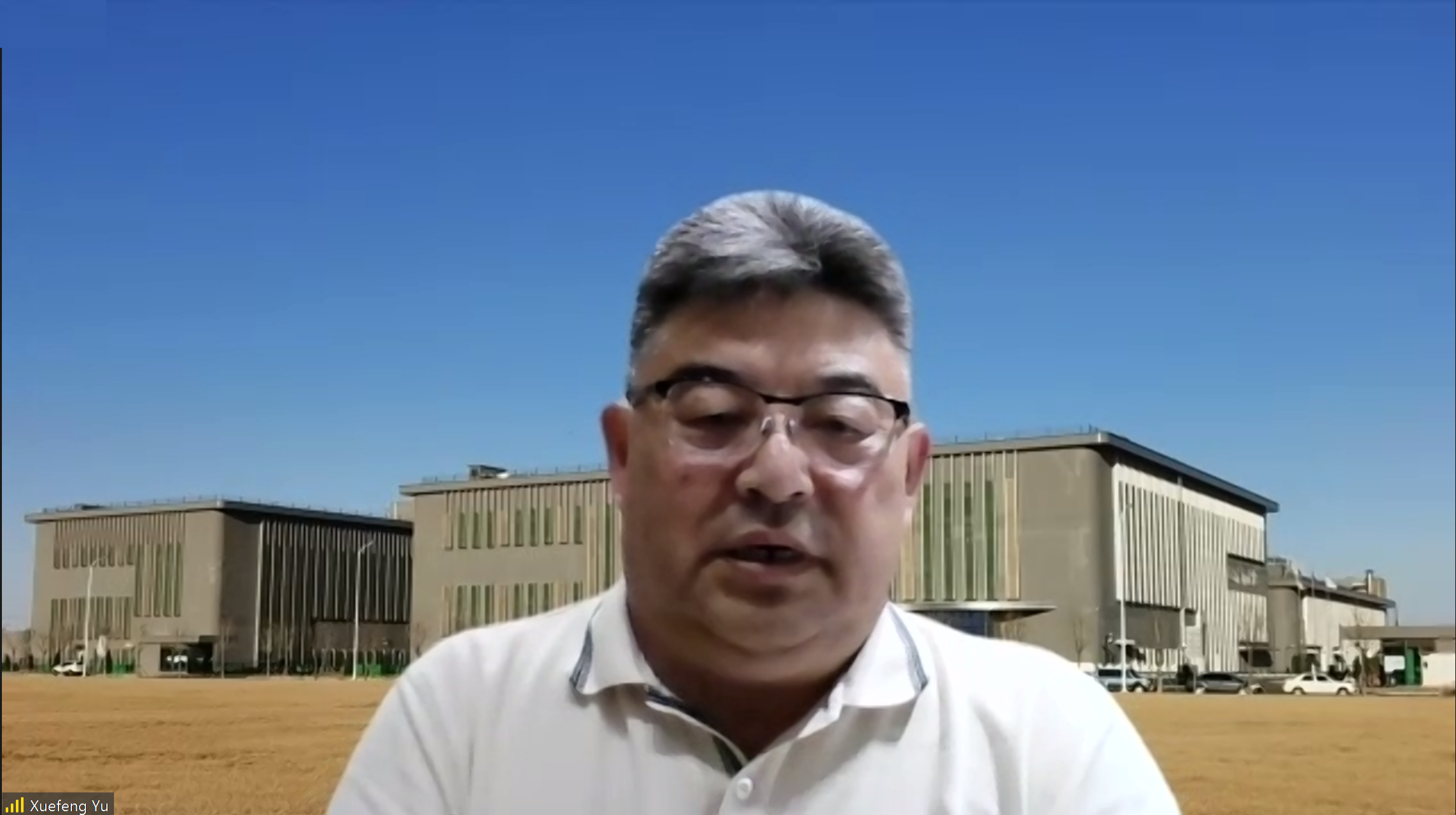
YU Xuefeng, Co-Founder, Chairman and CEO, CanSino Biologics Inc.
The Dialogue participants actively discussed the above topics in great detail and put forward recommendations on how to address those topics.
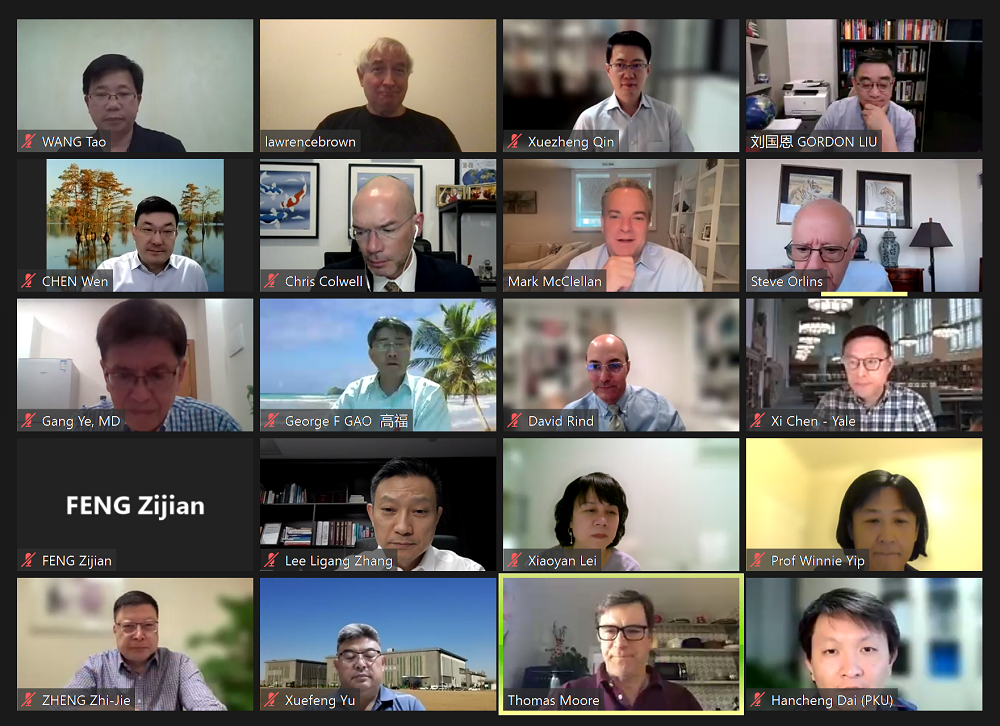
In 2017, the National Committee on U.S.-China Relations established a Track II dialogue between the United States and China to discuss major issues surrounding healthcare faced by both nations, in partnership with the National School of Development (NSD) at Peking University. As with previous Dialogues, this Dialogue concluded with a key set of points for considerations and policy recommendations in both countries. Based on this Dialogue, a consensus report will be followed to be circulated to relevant high-level departments in both governments.